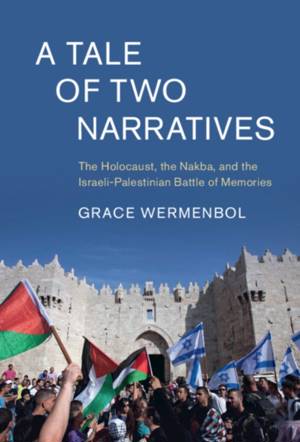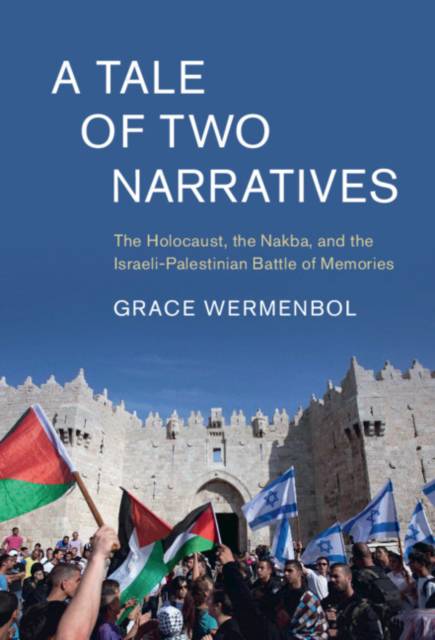
Bedankt voor het vertrouwen het afgelopen jaar! Om jou te bedanken bieden we GRATIS verzending (in België) aan op alles gedurende de hele maand januari.
- Afhalen na 1 uur in een winkel met voorraad
- In januari gratis thuislevering in België
- Ruim aanbod met 7 miljoen producten
Bedankt voor het vertrouwen het afgelopen jaar! Om jou te bedanken bieden we GRATIS verzending (in België) aan op alles gedurende de hele maand januari.
- Afhalen na 1 uur in een winkel met voorraad
- In januari gratis thuislevering in België
- Ruim aanbod met 7 miljoen producten
Zoeken
A Tale of Two Narratives
The Holocaust, the Nakba, and the Israeli-Palestinian Battle of Memories
Grace Wermenbol
€ 152,95
+ 305 punten
Uitvoering
Omschrijving
The Holocaust and the Nakba are foundational traumas in Israeli-Jewish and Palestinian societies and form key parts of each respective collective identity. This book offers a parallel analysis of the transmission of these foundational pasts in Israeli-Jewish and Palestinian societies by exploring how the Holocaust and the Nakba have been narrated since the signing of the 1993 Oslo Accords. The work exposes the existence and perpetuation of ethnocentric victimhood narratives that serve as the theoretical foundations for an ensuing minimization - or even denial - of the other's past. Three established realms of societal memory transmission provide the analytical framework for this study: official state education, commemorative acts, and mass mediation. Through this analysis, the work demonstrates the interrelated nature of the Israeli-Palestinian conflict and the contextualization of the primary historical events, while also highlighting the universal malleability of mnemonic practices.
Specificaties
Betrokkenen
- Auteur(s):
- Uitgeverij:
Inhoud
- Aantal bladzijden:
- 412
- Taal:
- Engels
- Reeks:
Eigenschappen
- Productcode (EAN):
- 9781108840286
- Verschijningsdatum:
- 27/05/2021
- Uitvoering:
- Hardcover
- Formaat:
- Genaaid
- Afmetingen:
- 152 mm x 229 mm
- Gewicht:
- 716 g

Alleen bij Standaard Boekhandel
+ 305 punten op je klantenkaart van Standaard Boekhandel
Beoordelingen
We publiceren alleen reviews die voldoen aan de voorwaarden voor reviews. Bekijk onze voorwaarden voor reviews.









